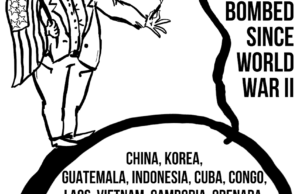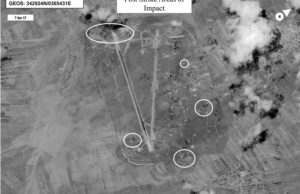Latest from the Arab Spring: Ongoing mass killings in Syria kindling for civil war
Karl Sadkowski/Opinion Editor
Syria is in danger of civil war. After the prolonged stripping of human and civil rights for nearly five decades, Syrians demand political reform in protest to a violent military crackdown. Protests began in March last year.
2011’s monumental Arab Spring movement in North Africa and the Middle East brought the successful end to several longstanding dictators. Many Syrians are continuing this crusade for human rights and freedoms in their own country.
Opposition forces led by military defectors and other rebellious militias barricade Syrian towns against government soldiers. Since early 2011, they have been the resistance to the brutal and unjustified mass killings of thousands of innocent and unarmed people by the Syrian military.
Bashar al-Assad, Syria’s president and head of a dynastic and dictatorial government, refuses to step aside from power. His father, Hafez al-Assad, ruled the country for almost 30 years before his death in 2000.
Public demonstrations against Assad and the Syrian military, such as flag and portrait burnings, are pervasive among the rebellious population.
The fighting between the Syrian military and opposition has led to a complete collapse of public security. Civilians cannot cross streets without the threat of sniper fire. Helicopters are capable of massacring large groups of people from above.
The Local Coordination Committees of Syria, a network of opposition activists, states that more than 7,300 people have died since the military crackdown began. Thousands more are crossing Syria’s northern border into Turkey, where government-provided tents create temporary homes for refugees.
Western governments urge Assad to step down from presidency. Assad, who claims he is not in charge of the military, calls the crackdown an effort to remove anti-government terrorist groups throughout the country. While the truth behind who leads the military remains unclear, military officials fearful of losing their power continue to attack civilians in the hope of quelling the unending uprising.
On Saturday, the UN Security Council failed to pass a draft resolution calling for an end to the conflict in Syria. Russia and China, who both support Assad, rejected the resolution with their veto power as permanent members of the Security Council. In recent days, more than 200 people have been killed in the strategic city of Homs, which has been under heavy attack by the Syrian military. Civilians call the international community inactive, claiming that it is doing nothing to end the killings.
Political pressure, economic sanctions and otherwise total isolation of the Syrian government appear the best solutions to a conflict gravitating toward civil war. If these options fail and innocent civilians continue to die as opposition forces in Syria weaken, foreign intervention—such as Arab League military forces—to the conflict in Syria may become necessary.









You must be logged in to post a comment Login